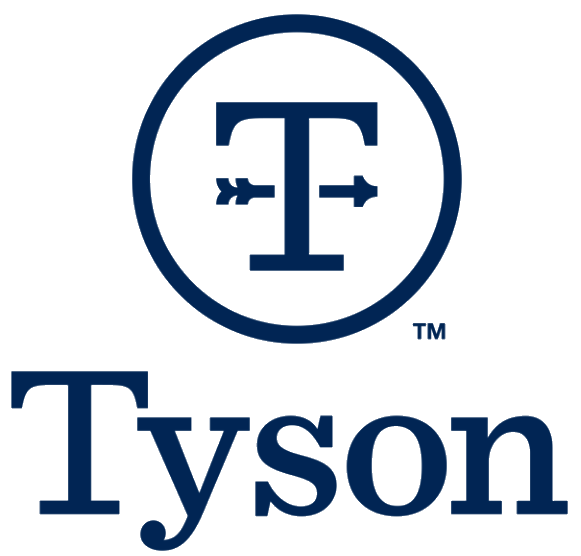Creating Employee Education with Upward Academy
Kevin Scherer, Senior Manager, Employee Social Responsibility
When I first joined Tyson Foods as a part-time chaplain in our Berry Street and Randall Wobbe Lane plants in Springdale, Arkansas, a little over three years ago, I had only a basic idea of the challenges our team members face. At Berry Street, our workforce is almost exclusively Hispanic/Latino and Marshallese. Very few of the team members speak English, and much of the day-to-day communication is done through interpreters.
It turns out this is a pretty common scenario in many of our plants across the country, where nearly 30 different languages are spoken regularly.
Working alongside team members on the processing line, I began to understand how the language barrier was bleeding over into nearly every aspect of their lives. To participate in their communities, to help their kids with homework, to understand their benefits, to fill out forms at the doctor, to go shopping – it all hinges on being able to understand the language. And some of these team members, being new to the U.S. with limited education and big cultural barriers, were facing instances of predatory lending, tax scams and worse.
Needless to say, these challenges also led to absences at work, lower productivity, and potentially, safety issues. The more I and the other chaplains dug in, the more we realized that if Tyson Foods could help our team members manage some of these personal challenges, we might be able to help address business issues, as well.
To find answers, we started by asking team members what they needed, going out into the community to find out as much as we could about their cultures. We found that a big part of the answer was a need for employee education, but we needed to overcome logistical challenges like child care and transportation. Many also needed some specific life skills such as financial and legal literacy.
Once we identified the specific needs, we began looking for community partners to help. We found it at the Cisneros Center for New Americans, a nonprofit that specialized in helping immigrants integrate into their new communities. Over countless meetings and working sessions, they helped connect us with key community partners.
Because the Tyson workforce is made up of people from all walks of life, we didn’t want to limit the pilot to just immigrants, so we expanded the scope of offerings to help people from all different backgrounds. Led by adult education instructors, the pilot program offered free English, GED and U.S. Citizenship classes, plus monthly, functional literacy classes covering various topics such as legal aid, loan scams, and tax fraud. These were offered on-site at the plant, before and after shifts, to help address some of the logistical challenges around child care and transportation.
Initially, I thought that if we could get 10-15 people to sign up, we would have a good start. In March 2016, at our inaugural launch in our Randall Wobbe Lane plant, 128 of the plant’s 300 team members signed up – nearly half the plant’s population. I was blown away, and suspected it was a fluke. But when we rolled out to Berry Street a few months later, 250 more signed up. As participants started showing improvements, we began to realize we might be on to something.
Around April 2017, the local Cisneros Center chapter closed, and we jumped at the opportunity to bring on Dr. Donna Davis and her colleague Emily Hackerson as program consultants. Upward Academy, with its focus on social impact, was folded under the Corporate Social Responsibility (CSR) umbrella, led by senior director Debra Vernon.
By the end of last year, Upward Academy had launched in 17 more plants in Arkansas and Missouri, with plans to launch in 22 more locations in four states by the end of 2018. We’re on schedule, rolling out in a new facility every two weeks. Over the past year, we’ve partnered with the University of Arkansas to conduct research studies and provide ongoing measurement around business and social impacts of the program. Research is still underway to determine the true impacts, but initial results are promising.
Upward Academy would not have been successful without the innumerable individuals and departments from within Tyson Foods who have lent their commitment and support as well as considerable expertise to help bring it to life. It is a clear example of the 5Cs, born out of a genuine desire to bring stability to our team members and help them and their families secure a place in the community. Together as a company, we’ve built something special.
The program has also benefitted tremendously from external organizations who recognized the company’s vision and helped us shape a program to be proud of. Today, hearing stories from team members like Delfino Garcia, one of our first students in our Berry Street plant, makes all the hard work worth it.
“I can help my child with homework,” he said. “When I have to take them to the doctor, I don’t need somebody to translate because Upward Academy helps me a lot in that situation […] If I’ve got emergency, I call 911. If I need help for somebody, or else if I have to travel somewhere like another state, I know they speak the same language I speak right now, thanks to Upward Academy.”
These stories are what drive me to get me out of bed every morning, excited about the day. I can’t wait to see what happens next.

